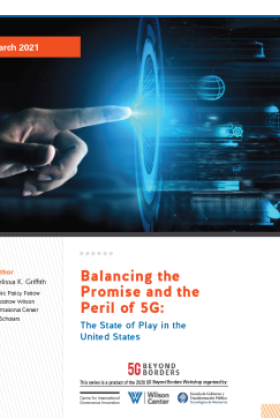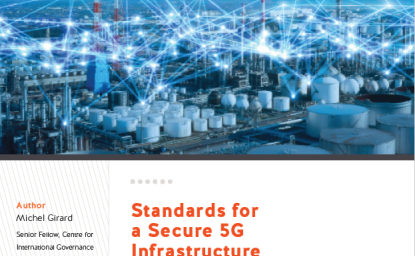Balancing the Promise and the Peril of 5G: The State of Play in the United States







This policy brief is a contribution to a roundtable focusing on the future of 5G in North America. The 5G Beyond Borders roundtable, organized by the Wilson Center, Centre for International Governance Innovation (CIGI), and Tecnológico de Monterrey, aimed to discuss how strategic cooperation at the North American level can directly shape the future of 5G and lay the groundwork for expanded North American competitiveness in a range of emerging technologies. One primary goal of the conference was to help lay the foundations for a broader North American Technology Trust.



The Science and Technology Innovation Program (STIP) serves as the bridge between technologists, policymakers, industry, and global stakeholders. Read more


The Mexico Institute seeks to improve understanding, communication, and cooperation between Mexico and the United States by promoting original research, encouraging public discussion, and proposing policy options for enhancing the bilateral relationship. A binational Advisory Board, chaired by Luis Téllez and Earl Anthony Wayne, oversees the work of the Mexico Institute. Read more


The mission of the Wilson Center's Canada Institute is to raise the level of knowledge of Canada in the United States, particularly within the Washington, DC policy community. Research projects, initiatives, podcasts, and publications cover contemporary Canada, US-Canadian relations, North American political economy, and Canada's global role as it intersects with US national interests. Read more


